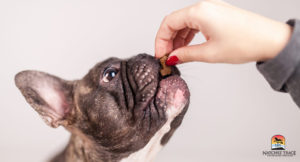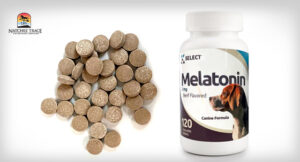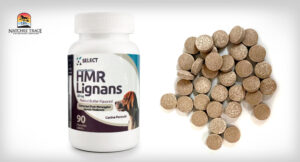If you’re a pet owner, you know how important your furry friend is to you. That’s why it’s crucial to be aware of health problems that can affect your pup, such as Cushing’s disease in dogs.
This condition occurs when your dog’s body produces too much cortisol, a hormone that helps them deal with stress.
There are several causes of Cushing’s disease in dogs, including tumors on the pituitary or adrenal glands, or prolonged use of certain medications.
If left untreated, Cushing’s disease can lead to a variety of symptoms that can impact your dog’s quality of life, such as excessive thirst and urination, weight gain, hair loss, and lethargy.
As a pet owner, it’s important to recognize these symptoms and seek treatment as soon as possible to help your dog feel better.
By working with your veterinarian and staying informed about Cushing’s disease, you can help ensure that your furry friend stays healthy and happy.
What is Cushing’s Disease in dogs?
When a dog suffers from Cushing’s, the adrenal glands produce a variety of excess hormones, mostly cortisol. More times than not, older dogs suffer from this disease and the symptoms often mimic other diseases. You may notice symptoms such as:
More times than not, older dogs suffer from this disease and the symptoms often mimic other diseases. You may notice symptoms such as:
- Increased hunger, thirst, and urination
- Increased panting
- Pot-belly appearance
- Obesity
- Excess fat on the neck and shoulders
- Hair loss
- Low energy
What is Atypical Cushing’s Disease?

Atypical Cushing’s Disease presents with the exact same symptoms as Cushing’s disease yet no cortisol increase exists.
The adrenal glands produce increased levels of intermediate adrenal steroids often called “sex steroids.”
These increased sex steroids lead to the same symptoms as typical Cushing’s; however, standard Cushing’s tests fail to prove the diagnosis confusing both the veterinarian and pet owner.
But, hope exists with proper treatment.
Natural Treatment for Cushing’s Disease and Atypical Cushing’s Disease
Melatonin and Lignans together provide an excellent natural treatment for both Cushing’s and Atypical Cushing’s disease.
In fact, Melatonin and lignans help your dog’s system return to normal.
What’s even better is that both of these supplements are readily available at my online store, TCVM Pet Supply.
Melatonin
Melatonin helps balance hormones and slow the growth of tumors.

A general guideline for dosing melatonin is:
- Dogs under 10 lbs – 1 mg of melatonin every 12 hours (also for those who want to give their dogs very low doses of melatonin)
- Dogs under 30 lbs – 3 mg of melatonin every 12 hours
- Dogs over 30 lbs – 6 mg of melatonin every 12 hours
- Note: We recommend not exceeding a melatonin dosage of 3 to 6 mg every 8 to 12 hours.
- Note: Make sure you read the label and give your dog supplements containing melatonin only. Colorings and additives may be toxic to your dog.
Note: If melatonin makes your dog excessively sleepy, give melatonin only at night.
Lignans
 The University of Tennessee College of Veterinary Medicine recommends the following lignan dosages:
The University of Tennessee College of Veterinary Medicine recommends the following lignan dosages:
- SDG flax hull lignans – 1 mg per lb of body weight
- HMR lignans – total doses of 10mg – 40 mg daily should be adequate for small to large dogs
Conclusion
In conclusion, as a pet owner, it’s important to be aware of health issues that can affect your furry friend, including Cushing’s disease in dogs.
With symptoms like excessive thirst, weight gain, and hair loss, this hormonal disorder can have a significant impact on your dog’s quality of life if left untreated.
However, with early detection and proper management, your dog can still live a happy and healthy life.
Melatonin and Lignans are natural supplements that can be used in conjunction with traditional treatment to help manage Cushing’s Disease in dogs.
If you suspect that your dog is suffering from Canine Cushing’s Disease or Atypical Cushing’s Disease, it’s important to consult with your veterinarian for proper diagnosis and treatment.
Looking for natural options for Cushing’s disease in dogs? Contact Dr. Smith right now.








